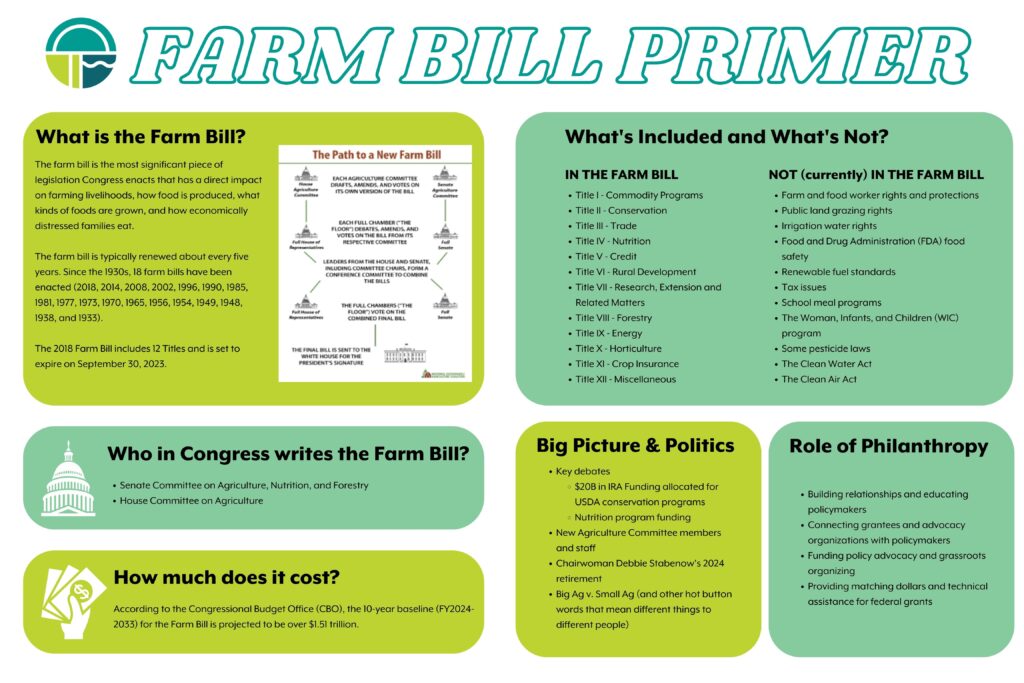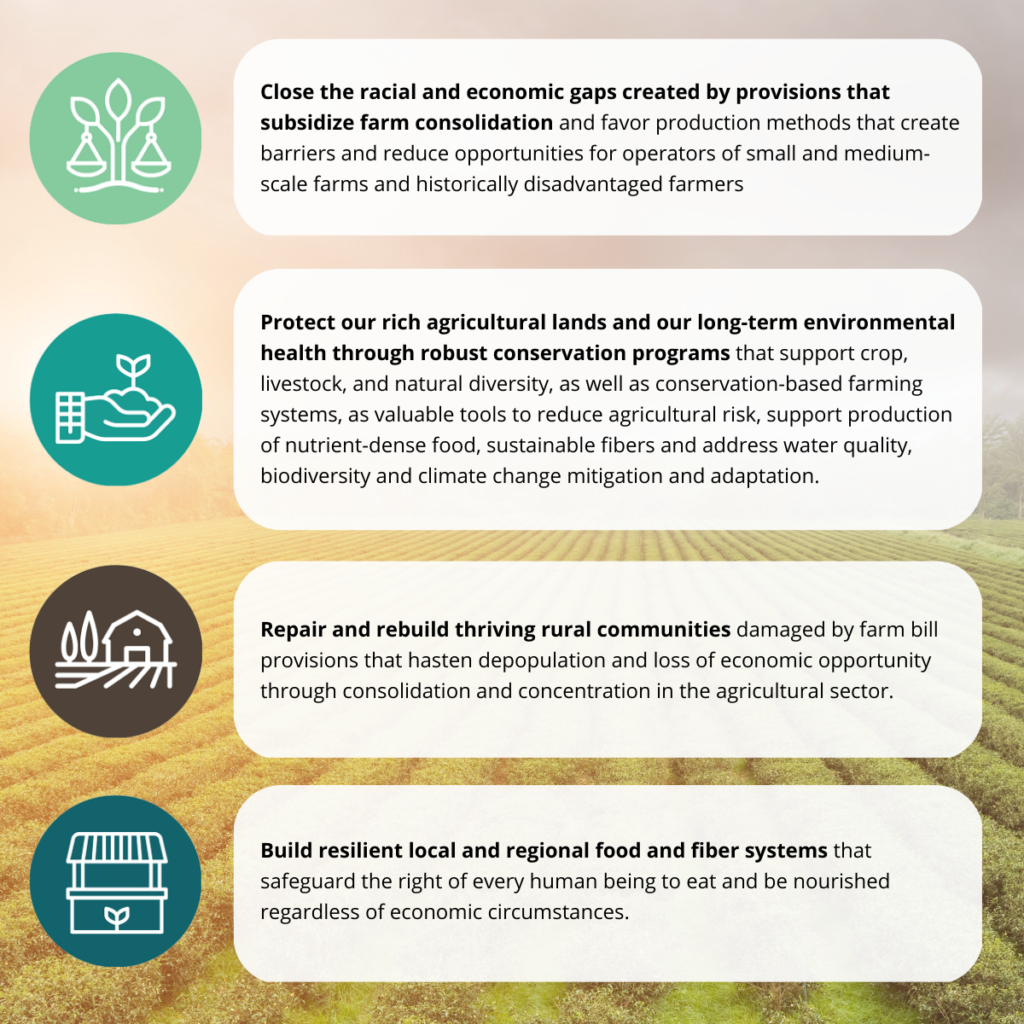Farm Bill
Overview of Farm Bill Policy
The farm bill, which is set to be reauthorized in 2023, is the most significant piece of legislation Congress enacts that has a direct impact on farming livelihoods, how food is produced, what kinds of foods are grown, and how economically distressed families eat. The 2018 Farm Bill includes twelve titles that cover commodity crops support, conservation of natural resources, nutrition, access to credit, rural communities, research and education, forestry, energy, horticulture, crop insurance, and beginning and historically disadvantaged farmers and ranchers, among other things. The breadth and scope of the farm bill likely touches more American lives than any other legislation.
It is critical for funders to engage at each step of the farm bill development process to bring their knowledge of the challenges faced on the ground by the communities they serve into the conversation. This will inform and shape the legislation and its implementation. Once the Farm Bill is passed, funders need to know where they can deploy resources to fill gaps and help their communities leverage available Farm Bill funding for maximum effect.

SAFSF 2023 Farm Bill Principles
The U.S. food and farming system is built on structural inequity. Farm bills, as well as the implementation of food and agriculture policies more broadly, have long perpetuated the systematic oppression of people of color and disinvested in rural communities.
SAFSF is committed to helping funders identify opportunities advance racial equity in federal policy and to engage the voices that have long been denied a seat at the table. We believe federal policy should support just and sustainable agriculture, food and fiber systems, in which it is possible for all people to equitably participate in and benefit from these economies. The following principles must be applied to the farm bill in order to make progress toward this goal.
Who writes the Farm Bill?
- Senate Committee on Agriculture, Nutrition, and Forestry
- House Committee on Agriculture
- Senate Appropriations Subcommittee on Agriculture, Rural Development, Food and Drug Administration, and Related Agencies
- House Appropriations Subcommittee on Agriculture, Rural Development, Food and Drug Administration
What drives the Farm Bill?
The three key issue areas that drive farm bill development any year are commodities, nutrition, and conservation.
USDA Deputy Secretary of Agriculture Kathleen Merrigan noted earlier this year that the 2023 Farm Bill will be driven by four key challenges: the overall price tag, nutrition program structure, IRA funding for agriculture conservation programs, and inexperienced legislators.
SAFSF member Rural Advancement Foundation International (RAFI)’s marker bill tracker includes bills that have been introduced already, either in the 118th Congress, or previous sessions, and which RAFI-USA has endorsed. This is a great tool to review the diversity of policy ideas that legislators have developed for inclusion in the 2023 Farm Bill.
Efforts on the Ground
SAFSF’s Farm Bill Platforms from the Field webinar series highlighted 10 nonprofits and coalitions that have proposed legislative platforms for the 2023 Farm Bill:
